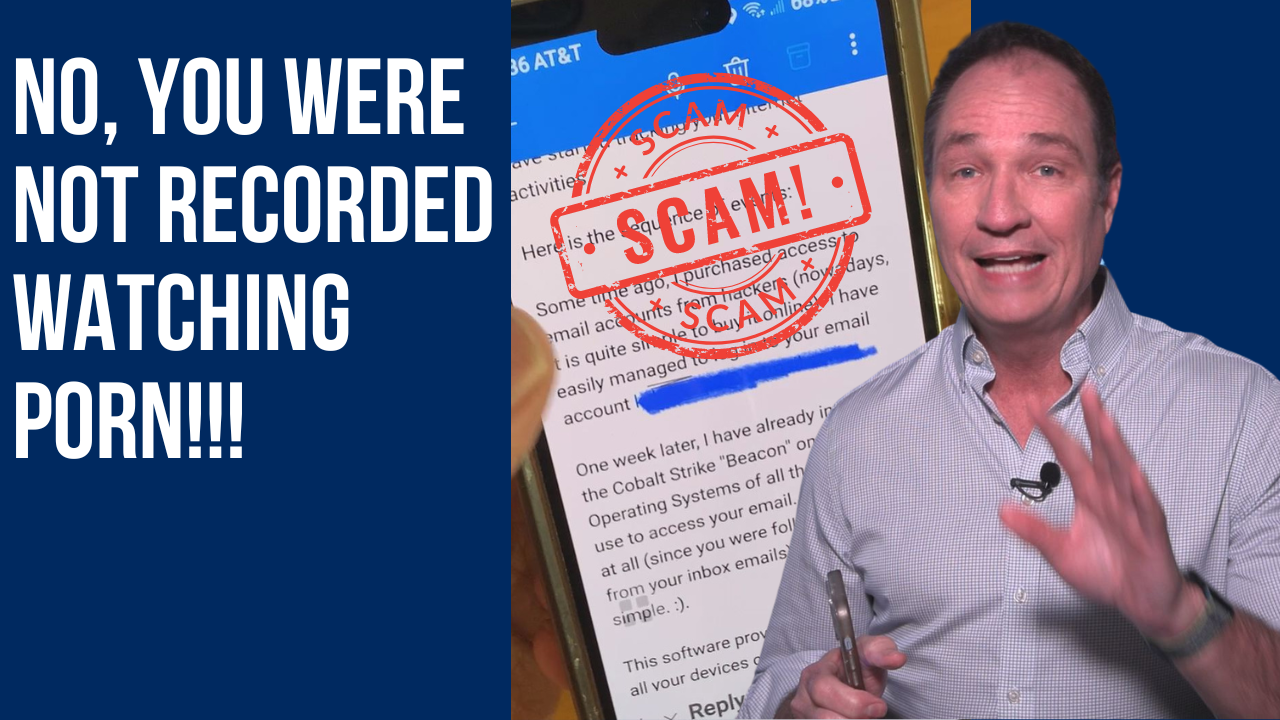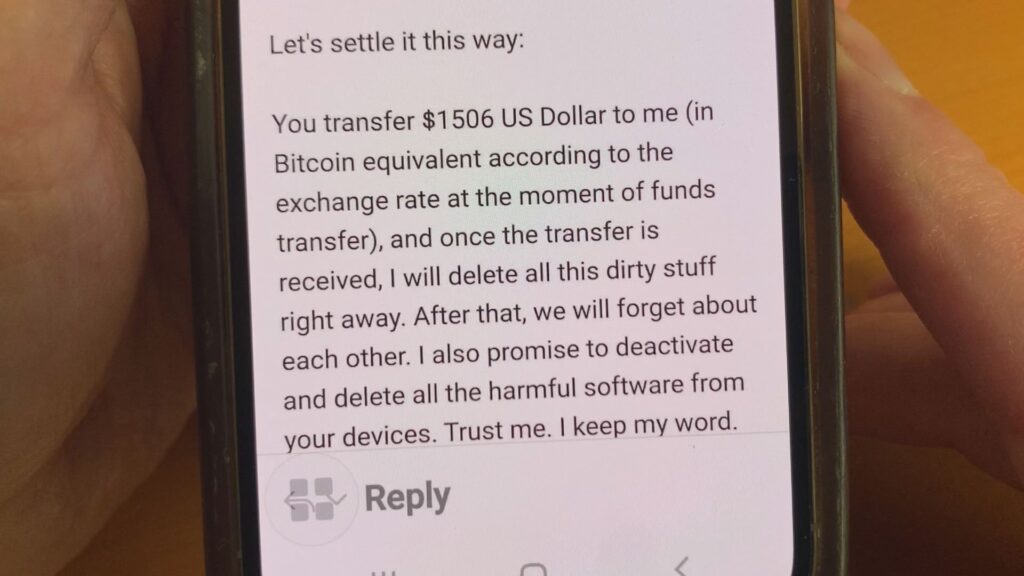- Home
- The Latest
- A terrifying scam victims neve ...

Internet scams seem to lurk around every corner, and unfortunately, there’s one in particular that’s been quite successful in separating people from their hard-earned money.
This scam has been making the rounds every few years, and chances are, someone you know might have fallen victim to it without ever mentioning it to anyone.
The first time this scam was brought to light was around a decade ago, and it resurfaced again in 2020. Now, cyber creeps are at it again, spreading their deceitful tactics far and wide. Just last week, one of our viewers received a threatening email and forwarded it to me. She said she was terrified and did not know what to do.
The scammer’s modus operandi is to claim they’ve gained access to the victim’s email account, alleging they’ve installed software to record their phone screen and face. They then threaten to release compromising photos, supposedly taken while the victim was browsing a pornographic website, unless a hefty sum of $1,506 in Bitcoin is paid.
Let’s get one thing straight: this is a scam. But it’s essential to understand how it operates to protect yourself:
Firstly, cybercriminals do indeed purchase usernames and passwords from the dark web, but merely having this information doesn’t grant them the ability to install software on your devices.

However, they can deploy malware onto your computer by tricking you into clicking on a malicious link or providing them with remote access, often through a convincing phone call posing as technical support.
Furthermore, some victims report receiving emails containing screenshots of their faces, allegedly captured while downloading a video game or pirated software. Again, it’s all part of the scam. Those victims also happened to have downloaded pirated software and video games that captured their images when they installed the program. The images and email addresses were made available for purchase on the Dark Web.
Thankfully, there are ways to discern whether an email is legitimate or a scam. A quick Google search can often reveal the truth. Scammers tend to be lazy and reuse the same email templates or send them as images. By copying and pasting a suspicious email into a search bar, you can uncover results that expose the scam for what it is.
If you ever feel threatened by an email scam, don’t hesitate to take action. Remember to stay vigilant and educate yourself about the latest scams circulating on the internet.
Report this and other scams to the FBI cyber tip line: https://tips.fbi.gov/home

